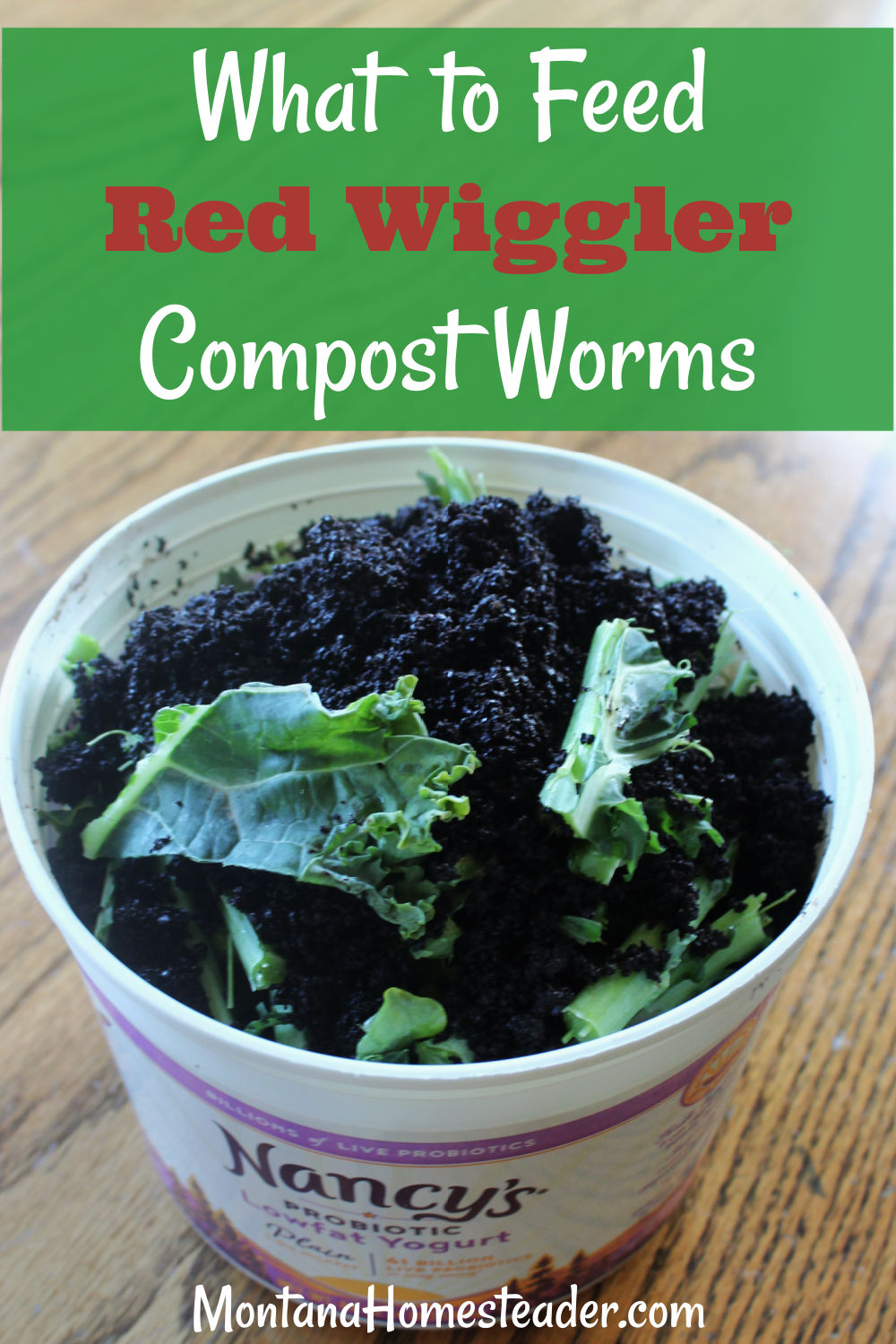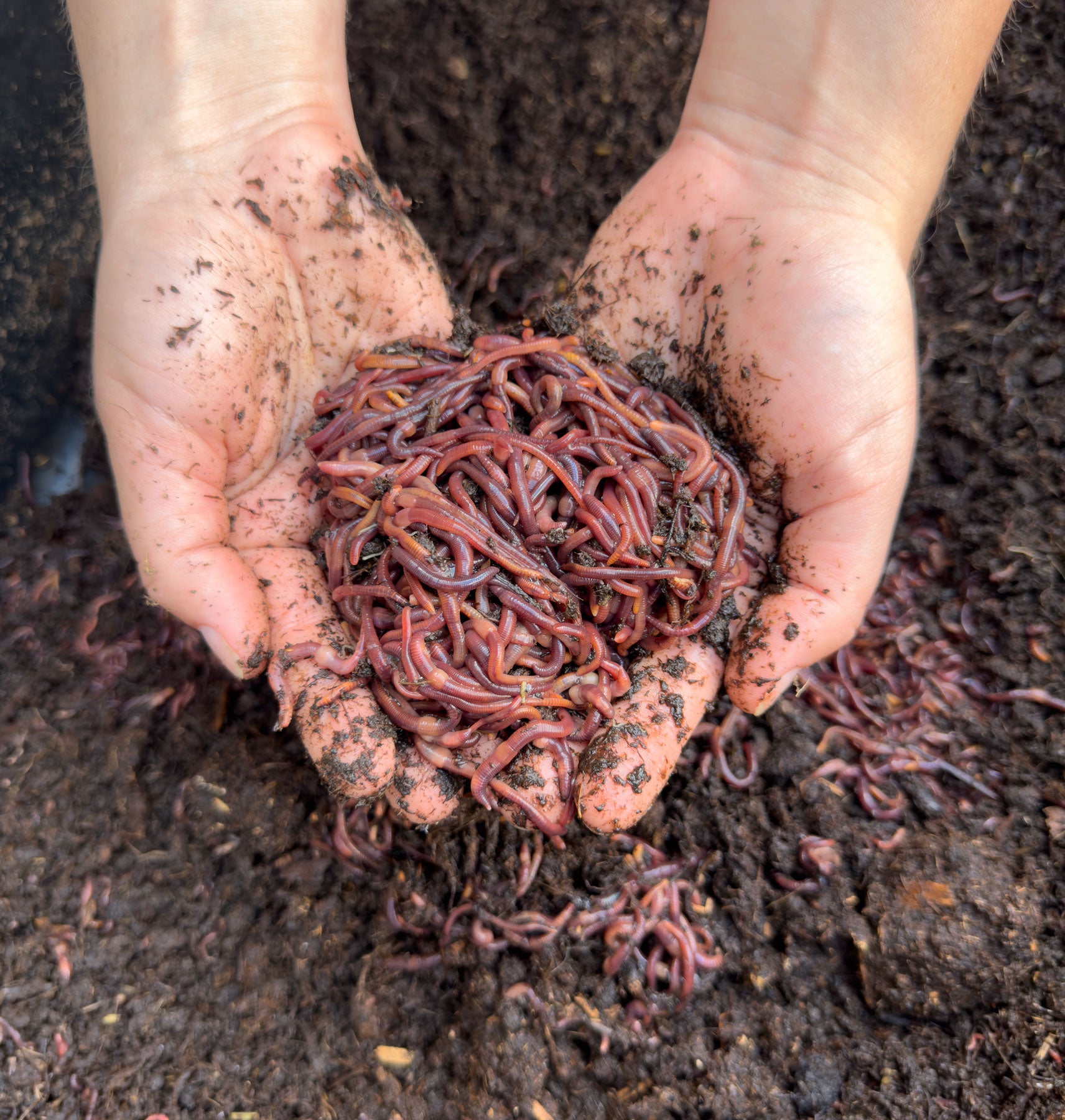Premium High Quality Red Wiggler Worms - Improve Your Yard's Fertility
Premium High Quality Red Wiggler Worms - Improve Your Yard's Fertility
Blog Article
Red Wiggler Worms Demystified: Unlocking the Tricks of Vermiculture for Greener Living and Nutrient-Rich Soil
In the realm of lasting methods for enhancing dirt high quality and promoting eco-conscious living, red wiggler worms play a pivotal yet often forgotten function. Red Wiggler Worms. Understanding the details of caring for these worms, enhancing their environment, and using their spreadings can lead to a greener lifestyle and much healthier soil for plants to grow.
The Duty of Red Wiggler Worms
Red Wiggler worms play an important function in composting systems by effectively damaging down raw material right into nutrient-rich spreadings. These voracious eaters take in a variety of natural materials, such as kitchen area scraps, yard waste, and paper items. As they feed, the worms' digestion processes break down the raw material into a fine, dark, and nutrient-dense product called worm spreadings or vermicompost.
The castings produced by Red Wiggler worms are highly useful for soil wellness and plant development. They are rich in essential nutrients like phosphorus, nitrogen, and potassium, which are important for sustaining healthy plant growth. In addition, worm castings consist of valuable microorganisms and enzymes that assist improve dirt structure, rise water retention, and improve nutrient uptake by plants.
Advantages of Vermicomposting

It enhances dirt structure, boosts soil aeration, and raises dirt dampness retention. Vermicompost additionally enriches the dirt with vital nutrients like potassium, nitrogen, and phosphorus, advertising plant growth and overall soil fertility.
In addition, vermicomposting assistances sustainable gardening methods by giving a natural and chemical-free option to artificial plant foods. Red Wiggler Worms. This environmentally pleasant strategy not only enhances the dirt but also assists reduce reliance on unsafe chemicals, promoting a greener and much more sustainable method of horticulture
Setting Up a Worm Bin
When establishing a worm container for vermicomposting, correct setup is vital to ensure the success of the composting process. The initial step in establishing a worm container is choosing an ideal container. This can be a plastic container or wood box that gives sufficient area for the worms to move and has proper water drainage openings to stop waterlogging. Next off, a bedding material such as shredded paper, cardboard, or coconut coir need to be included to the bin. This bedding provides a comfy setting for the worms and assists maintain moisture degrees.
After including the bed linens, introduce the red wiggler worms to the bin. The worms ought to then be provided with food scraps such as fruit and veggie peels, coffee premises, and eggshells.
Routinely monitor the dampness degrees and temperature in the worm bin to guarantee optimal problems for the worms. With appropriate setup and maintenance, the worm bin will properly transform organic waste into nutrient-rich compost for your plants and garden.
Collecting Worm Spreadings
To effectively collect nutrient-rich worm spreadings from your vermicomposting system, an organized harvesting technique is necessary. When it comes time to gather the worm castings, there are a couple of essential steps to comply with to guarantee an effective process. Stop adding fresh food scraps to one side of the worm bin for a couple of weeks prior to collecting. This urges the worms to migrate to the side with fresh bed linen and food, making it less complicated to scoop out the castings from the opposite side.

Troubleshooting Common Issues
Identifying and attending to typical difficulties that might arise during the vermicomposting procedure browse around this web-site is critical for keeping a efficient and healthy and balanced worm bin. One common concern that vermicomposters experience is overfeeding. Including excess food scraps can cause an accumulation of wetness and great site acidity in the worm bin, possibly damaging the worms. To avoid this, feed the worms in small amounts, guaranteeing that the food scraps are effectively damaged down prior to adding more. Another concern is unpleasant smells originating from the worm bin. Foul smells suggest anaerobic conditions, typically brought on by overwatering or insufficient ventilation. To treat this, change the moisture degrees by adding completely dry bedding products like shredded newspaper or cardboard and increase oygenation by turning the bed linens on a regular basis.
Furthermore, if the worm populace is declining or the worms show up harmful, maybe as a result of environmental stressors such as severe temperature levels or pH levels. Monitoring these elements and making essential adjustments is necessary for the well-being of the worms. By fixing these typical issues quickly, vermicomposters can make certain a smooth and successful vermicomposting procedure while maintaining a prospering worm populace.

Final Thought
In final thought, red wiggler worms play a crucial duty in vermiculture by breaking down organic matter into nutrient-rich dirt. Setting up a worm bin is necessary for effective vermiculture, and gathering worm castings offers important garden compost for horticulture.
As they feed, the worms' digestive procedures damage down the organic matter into a penalty, dark, and nutrient-dense material understood as worm castings or vermicompost.
The castings generated by Red Wiggler worms are very beneficial for soil wellness and plant development. Adding excess food scraps can lead to a build-up of moisture and level of acidity in the worm bin, possibly hurting the worms.In addition, if the worm population is decreasing or the worms appear harmful, it could be due to ecological stressors such as severe click to find out more temperatures or pH degrees. Setting up a worm container is vital for successful vermiculture, and collecting worm castings gives useful compost for horticulture.
Report this page